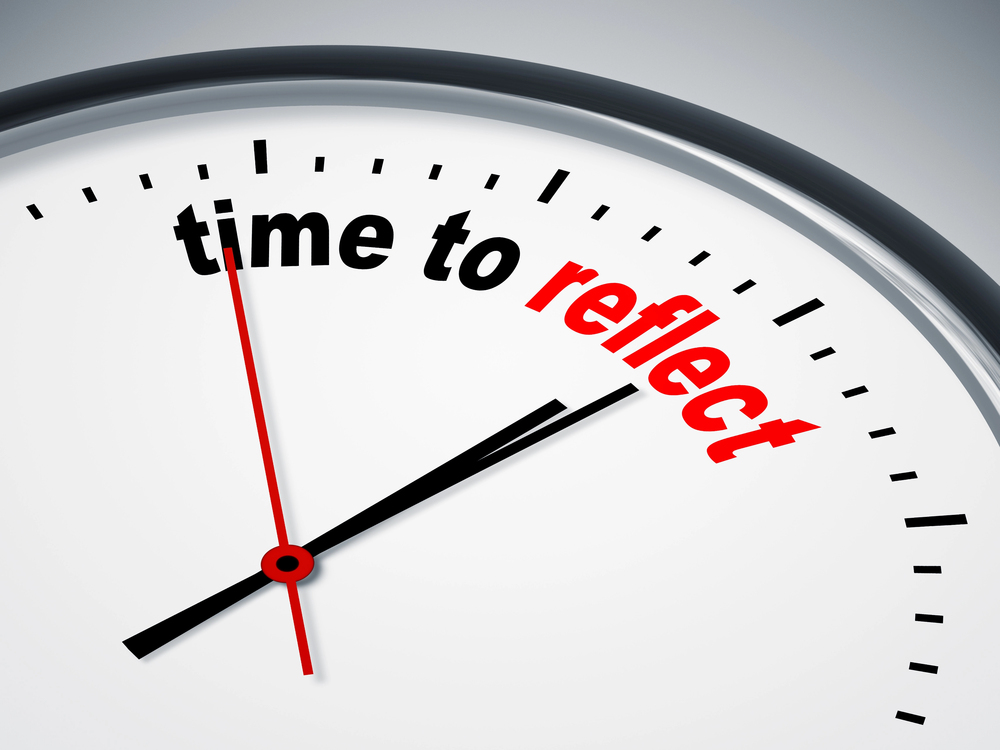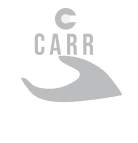Living a life in recovery is a journey and sometimes we lose our way. Know that one relapse does not erase the ground you’ve gained. The important thing is not to let that moment define your journey. Regaining control is possible, and each step forward brings you closer to your long-term goals.
Now, let’s discuss how you can bounce back, learn from what happened, and keep moving toward the life you deserve.
Why Do Relapses Happen?
Relapse in sobriety is more common than one can imagine. It is just that life has a way of testing us every day, just like recovery. Several factors, from emotional triggers to old habits, may suddenly sweep you off that all-important path. However, comprehension of why they happen may better help you negotiate those moments whenever they pop up.

Some of the very common causes of relapse include:
- Emotional stress: Difficult emotions like anxiety, sadness, or even boredom can push you toward unhealthy coping mechanisms.
- Social pressure: Being around others who are drinking or using substances is a huge trigger, especially when one isn’t prepared to handle this.
- Lack of support: Feeling alone or unsupported in your recovery weakens the resolve.
Knowing them can help you prepare for those triggers. The important thing to remember is that relapse doesn’t mean failure—they’re just a chance to learn and grow more in your recovery.
Immediate Actions to Take After a Relapse
The first steps after a relapse are crucial. It’s important to act quickly to regain control and avoid spiraling. Below are some practical actions to help you get back on track immediately.
1. Remove Yourself from the Situation
The minute you know you’ve had a relapse, remove yourself from the environment or situation that set it off. Distance is your friend here, whether you are in social company, within your home, or in another triggered area. You are giving yourself space to clear your mind and regain control.
It might feel awkward to leave suddenly, but prioritizing your sobriety is more important than any temporary discomfort. Sometimes, just removing yourself from the situation is enough to stop things from snowballing.

2. Reach Out for Support
After a relapse, it’s easy to feel isolated or ashamed, but reaching out is one of the best ways to get grounded again. Call a sponsor, a close friend, or a support group member who understands your journey.
They remind you that a single mistake only allows the good work you have been doing so far. Sometimes, it takes a quick conversation to change your perspective and let you know you are not alone. More often than not, talking your way through what transpired lifts many of the emotional burdens you might carry.
3. Reflect Without Judging Yourself
Guilt following a relapse is not unnatural, but chewing over it only makes things worse. Rather than falling into a cycle of self-blame, take a minute to reflect on what transpired- no judgment. Ask yourself what led to this point in time. What was I feeling or thinking? It shows you the circumstances, but you should not call yourself a failure.
Remember, a slip is only a moment on your recovery path, not the end of the world. Knowing when it happened and being kind to yourself without self-judgment allows you to progress more clearly.

4. Reaffirm Your Commitment to Sobriety
Once the initial shock of the relapse has passed, remind yourself why you started this journey in the first place. Be it for your health, relationships, or personal growth, go back to the reasons that compelled you to lead a sober life. These are your anchors, and going back to them will restart your commitment.
Take a few minutes to reflect on these thoughts and re-establish your goals. This step is important to refocus attention away from the slip and back onto what one is still working towards.
5. Avoid Further Triggers
One mistake makes it easier to fall prey to temptation once again. That is why you must see what immediate triggers are there and learn how to avoid them. The more familiar these people, places, and states of your emotions are, the better you will preserve yourself on solid ground. Where possible, remove such triggers from your environment, even if only for now.
If you are stressed about something, take more time to wind down healthily. You can do this by taking a walk or doing some mindfulness exercises. This is how you create a buffer zone between yourself and what made you relapse.

6. Get Back to Your Routine
The best way to get back on track after a relapse is to resume your usual recovery routine as soon as possible. This may involve attending support meetings, keeping up with your morning meditation, or at least the physical activities that will keep you grounded; re-establishing your routine helps restore normalcy.
These habits will form the bedrock of your recovery, and slipping back into them can help you regain control and remind you of the progress you have already achieved. The sooner you return to what is familiar and positive, the easier it is to move on.
How Can You Learn from a Sobriety Relapse?
Relapses can be learning experiences if you let them. Change your mindset and not look at those moments as failures but as opportunities to strengthen your sobriety.
First, consider the context of what came before. Was this because of work stress? Were you lonely? Reflect on what occurred just before the relapse – a pattern may emerge, and then one can make a few changes to avoid similar situations. This can be setting better limits or being more aware of emotional triggers.
Now, think about what you can do differently next time. Maybe you will avoid the situation altogether or have a different way of coping when it becomes tough. It is all about learning.
Remember that setbacks happen to almost anyone in recovery. What is more important is your response, it may mean picking yourself up while continuing with new insights and repledged devotion.
Rebuilding Your Sobriety Plan
After a relapse, it is always advisable to reevaluate and revise one’s plan of sobriety. Take this opportunity to lay a better foundation and clearly state what is realistic and achievable about your intentions in the future.
First, your goals should be concrete. General goals, such as “I want to stay sober, ” may be overwhelming. Specific goals provide a direction in which you may focus your actions. Things to consider include the following:
- Establish daily or weekly goals: This can include attending a support group three nights a week or practicing mindfulness for 10 minutes each morning.
- Focus on your “why”: Remind yourself of the reasons you want to be sober, whether for health, relationships, or your future.
- Celebrate small wins: Every sober day counts and recognizing such moments will enable you to keep your motivation high.
Revisiting your plan with these small and clear steps will help you get into focus and give you the momentum to keep on.

Shifting Your Mindset After a Relapse
After a relapse, the difference can be in how you think about what has happened. Rather than interpreting the slip as a sign of failure, it can be viewed as an opportunity for learning. Recovery isn’t about perfection; it’s about progress. Remind yourself that setbacks are part of only natural development, and you are growing stronger with each recovery you make.
Challenge those negative thoughts that come into your head when you relapse. So many people let guilt or shame take over, and these indeed hold you back. Instead, focus on the thought that you are committed to moving on. Shifting this mindset from “I messed up” to “I’m still learning” can help you regain control and maintain motivation.
What Steps Can You Take to Strengthen Your Recovery?
Taking practical steps to reinforce recovery will keep one on track. Here are some of the things a person can do to help:
- Attend regular support meetings; these could be in the form of AA, NA, and other recovering groups.
- Set daily or at least weekly goals to keep focused and build momentum.
- Surround yourself with positivity with people, friends, family, or sponsors.
- Practice mindfulness through self-care, exercise, or other hobbies that please you.
- Avoid high-risk environments that may set off a relapse.
How Can You Move Forward with Confidence?
Moving forward from a relapse takes just a little bit of self-trust. You have already done the huge job of deciding to get sober. It is now all about rebuilding confidence one day at a time. Firstly, remember how far you’ve come: name what days, weeks, or years have passed since this recent relapse.
Remind yourself now that one relapse does not eradicate all the good you’ve accomplished in your sobriety. It was merely a bump in the road, not the end of your journey. Reflecting on the “why”-that is, the reasons for which you chose to be sober in the first place will give you the motivation to keep pushing forward when you slip back into substance use.
Finally, take small, positive steps. Confidence comes from action. Every time you attend a meeting, reach out for help or avoid a trigger, you’re proving to yourself that you can stay on track. Believe you can do what it takes to move forward. Most importantly, you got this.
How Can We Help You Stay on Track?
Recovery can be very personal at Zen Mountain Sober Living. Relapses may happen but do not define you. Our sober living homes provide a safe home environment to get back onto your feet and move forward. We’re here to offer structure, accountability, and community to help you into your sobriety.
We are much more than just a roof over your head. From recovery-based activities to employment support and frequent group meetings, we help you ground the foundation of your healthy, sober life. Whether it’s a fun outing to try a new hobby or connecting with others who understand what you’re going through, we aim to create an atmosphere where you may heal and grow.
Conveniently located in Denver, whether you’re new to recovery or seeking ongoing support, we have a place for you. You are not required to make this journey alone; with our compassionate staff and inviting community, we will be with you every step.
Ready for your next step? Contact us today to explore how we can help keep you on track in your recovery. Whether you have a relapse or simply need more support, we are here to help you build the life you deserve.
Conclusion
Relapse does not necessarily mean the end of your sobriety. You can get back on track confidently by trying to understand why it happened, taking immediate action to keep it from happening again, and learning from the experience. Sobriety is about progress, not perfection. Every step you go further with recovery-even after you’ve had a setback-is a step further.
We at Zen Mountain Sober Living are here to help guide you through the process. When you’re ready to rebuild, reconnect, and rediscover your strength, reach out today. Let us continue to walk together on this journey towards a healthy, sober life.
FAQs
Is it normal to have relapses during recovery?
Yes, relapses occur more than once in recovery and are essentially not considered failures. Recovery is a process, and they can happen to anyone. What’s important is how you respond and continue working towards your long-term sobriety.
How do I avoid feeling guilty after a relapse?
Guilt is natural; it’s there, but that doesn’t help. Without judgment, consider what led up to the relapse and then focus on what you can learn from it. Forgiving yourself is key to moving forward.

What can I do if I feel like I’m going to relapse again?
Identify your triggers and take proactive steps to avoid them. Reach out to your support system, attend a meeting, or engage in a positive activity that helps ground you. It’s okay to ask for help before things escalate.
How long should I wait after a relapse to get back into my recovery routine?
There is no need to wait. The quicker you get back into the recovery groove, the better. Go to a meeting now, check in with your sober network of friends or family, or practice mindfulness today to regain your control.
How can I talk to my loved ones about my relapse?
Be open and honest with your loved ones. Let them know you have experienced a slip, yet you are committed to further pursuing your recovery process. Communication helps them give more effective support and strengthens your resolve to stay on track.



